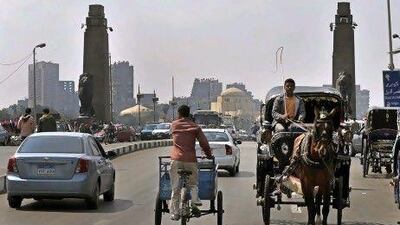Over the past two months, events in the Mena region have dominated headlines. While the situation keeps constantly evolving, many investors are also asking how the events will affect global stock markets in the long run.
While the events may cause a modest decline in the short term, Credit Suisse regards this as a buying opportunity for the medium to long term. Political change may result in short-term uncertainty and a temporary loss of output, but over a period of time it can unleash faster long-term growth, especially in countries that have civil institutions with deep historical roots such as Egypt.
Market moves in the past may be an imperfect comparison, but they do provide a guide. In 1991, as the collapse of the Soviet Union gathered pace, global emerging market equities fell about 5 per cent over the month to August 19 when Mikhail Gorbachev, the then president, was briefly arrested. However, they were up by about 20 per cent within a year and by more than 50 per cent in two years.
In Indonesia, the local stock market fell about 40 per cent in US dollars in the month up to May 21 1998 when Suharto left power. However, over the next six months, the market recovered much of these losses. Within a year, they rose well over 100 per cent and over 10 years enjoyed an annual compound growth of 20 per cent. Investors that are far-sighted may possibly see more opportunities than risks from current events for companies in the Mena region.
As a matter of fact, global investors so far have tended to shrug off rising global inflation and regional political uncertainties. Instead they have focused on the improving global economy, healthy corporate earnings and a benign interest rate outlook. In view of these trends, Credit Suisse believes the positive drivers will remain broadly in place and the risks will be contained.
However, over the short term, the next six months, although our view remains essentially positive for now, we are more watchful. Investor concerns over the near term are focused on oil supply, refugees and European and US companies whose businesses may be temporarily affected. In the coming weeks, price action may be more volatile, the negative effects of profit-taking perhaps alternating with the positive effects from deployment of cash.
Business survey data from around the world points to continued solid economic expansion in the global economy. This expansion seems to be broadening with less government impetus and inventory rebuilding and more consumer and investment spending. Importantly, it is also gaining geographic breadth. In fact, advanced economies have lately shown a bigger improvement in both economic indicators and actual data than emerging markets.
This more visible broadening of growth to advanced economies should support growth in emerging markets as well. Later in the year, we may see the growth momentum in advanced economies slowing down a bit but the re-acceleration of growth in emerging markets should keep global economic expansion going.
It is interesting to note that over the past year, there has been a relay race of growth surprises in global markets. Emerging markets witnessed the strongest growth surprises last year while developed markets saw the strongest growth surprises early this year. In the second half of the year, the growth baton is set to come back to emerging countries. Emerging equity markets are anticipating this.
Concerns over inflation, which may be correctly reflecting a turn in the very long-term cycle, could possibly fade by about the middle of the year. By then, we think it will become apparent that the acceleration in US inflation is a healthy ending of deflation risk rather than the start of an immediate price surge. We also see commodity price rises becoming patchier with periodic setbacks in some areas.
This inflation outlook will allow the US and European central banks to stick to the market-friendly timetable of very slow rate rises currently discounted in bond prices. The resulting combination of healthy growth and low interest rates, with valuations still undemanding even after recent rises, underpins our positive strategic view on emerging markets equities.
Kamran Butt is the head of Middle East and India private banking equity research at Credit Suisse

